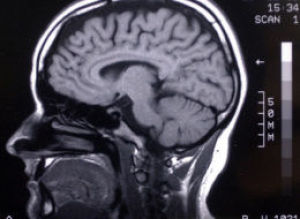
READ MORE - Mysterious Booms and Trembles Plague Wisconsin Town, Baffle Scientists
There's one sad truth in life I've found While journeying east and west - The only folks we really wound


A growing body of research shows that babies born in cities, and children who grow up in them, face a battery of health problems that afflict both their physical and mental well-being.
The problems pose a serious threat because ever-increasing numbers of us are spending our lives in cities.

In 1900, only 14 per cent of the world’s population were city-dwellers. Three years ago, that figure had risen to 50 per cent.
By 2050, the United Nations predict that 70 per cent of people will be urbanites.
City-dwellers should have a better deal in life, compared with their rural counterparts. On average, they are wealthier and have better job prospects. They enjoy bountiful food, superior healthcare and cleaner sanitation.
But urban living carries a significantly increased risk of chronic health disorders, such as mental illness, immune diseases, arthritis, heart disease, cancer and fertility problems.

And as cities become ever more crowded, these problems are only going to get worse.
The latest studies indicate that daily exposure to urban pollution can affect us before we are even born — leaving us prone to a lifetime of ill-health.
Scientists have discovered that babies born in cities are bigger and heavier — normally a good sign — than those born in the countryside. But when they compared the placentas of mothers from a busy city and a quiet rural district, they found that the city mums had far higher levels of chemical pollutants called xenoestrogens in their blood — and in that of their unborn babies.
Xenoestrogens are industrial chemicals that affect our bodies in similar ways to the female hormone, oestrogen.
They are found in countless man-made pollutants such as petrol fumes, and are more abundant in industrial areas than the countryside.
As well as causing excess foetal growth, they have been linked to problems such as obesity, hyperactivity, early puberty, fertility problems and cancers of the lung, breast and prostate.
The researchers, from the University of Granada, Spain, found that although city mothers were older and weighed less than rural mothers, they still gave birth to larger babies.
Dr Maria Marcos, who led the study, says the toxic xenoestrogens seem to have a significant effect on the development of unborn children. Her report provides the latest evidence that city air can seriously hinder normal childhood development.

But it doesn’t end there. Last year, laboratory tests undertaken at the Ohio State University showed how urban pollutants may cause metabolic changes in toddlers that result in raised blood sugar levels and increased resistance to insulin — which regulates the way our bodies metabolise carbohydrates.
The university’s professor of environmental health science, Dr Qinghua Sun, has observed that these pollutants can lead to the development of Type 2 diabetes.
‘These fine chemical particles directly cause inflammation and changes in fat cells, both of which increase the risk of Type 2 diabetes. In cities, it would be very difficult to escape the pervasive influence of dirty air that begins early in life.’
Indeed, growing numbers of children never leave their city environment. Figures from the pressure group Farming And Countryside Education indicate that one in five British youngsters has never visited the countryside. A further 17 per cent had only been ‘once or twice’.
Worse still for children’s development, city upbringings normally entail indoor lifestyles. Modern, concrete cityscapes are so unfriendly that only 20 per cent of youngsters play in the streets, yet 70 per cent of adults can recall doing so when they were children.
Growing up indoors has its own health threats — not least to growing eyes. Children who spend most of their day indoors have a far greater chance of suffering from ‘high myopia’, a severe form of short-sightedness. Half of sufferers become blind by middle-age.
Researchers at Australia’s Centre of Excellence in Vision Science believe that lack of sunlight is the culprit. They say exposure to sunshine causes the retina to release dopamine, a hormone that inhibits the excessive eyeball growth that causes myopia.
Their studies have found that children who spend time outdoors cut their risk of short-sightedness by a fifth.
City childhoods have also been blamed for the fact that urban youngsters are more likely than their rural counterparts to develop asthma and other allergies.
The theory — called the ‘hygiene hypothesis’ — suggests city children do not get to play in the mud, lie on the grass or splash in puddles and are therefore deprived of early exposure to relatively harmless microbes in the soil.

Instead, they grow up in over-hygienic homes — wiped down with antibacterial cleaning products and vacuumed religiously — that deny their immature immune systems the opportunity to develop a normal resistance to germs.
Recent research has indicated that city-dwelling mothers can even pass over-sensitive allergic reactions to their babies in the womb.
A study in the Journal of Experimental Medicine found that mothers who live amid farmyard microbes give birth to allergy-resistant offspring. This does not happen with mothers in cities.
Perhaps most disturbing is the toll on young minds that can be wrought by the stress of growing up in urban areas.
According to the hygiene hypothesis, because city children don't play in the mud, they are more likely to develop asthma and allergies
A study by Dr Glyn Lewis, of the Institute of Psychiatry in London, shows that incidence of schizophrenia is twice as high in men who are born and brought up in cities.
People in cities also have a 39 per cent higher risk of mood problems such as depression and bipolar disorder, and a 21 per cent increased risk of anxiety disorders — such as panic attacks, extreme phobias and obsessive-compulsiveness.
Young women growing up in cities are five times more likely to suffer from the eating disorder bulimia, according to a ten-year study in the British Journal of Psychiatry.
Earlier this year, German researchers reported that the brains of people born in cities actually operate differently from those in rural areas.
The study, based on brain scans, found that two regions of the brain, the amygdala and the cingulate cortex (both involved in regulation of emotion and anxiety), became overactive in city-dwellers when confronted with stress triggers.
The reaction in participants from the countryside was much milder.
Professor Andreas Meyer-Lindenberg, of the University of Heidelberg, says: ‘We know what the amygdala does — it is the danger-sensor of the brain and is therefore linked to anxiety and depression.
‘The cingulate cortex is important for controlling emotion and dealing with environmental adversity.’
He goes on to say that this excess activity could be caused by growing up amid environmental stress, and may lie at the root of many mental health problems.
Urban over-crowding may be a significant cause of these problems. Meyer-Lindenberg adds: ‘If someone invades your personal space, the amygdala-cingulate circuit gets switched on, so the trouble could be something as simple as urban density.’

Packed public transport, busy pavements and heaving High Street shops are all culprits.
And urban upbringings may be contributing to the rapid rise of behavioural problems in children, particularly attention deficit hyperactivity disorder (ADHD).
American studies in the journal Archives of General Psychiatry have found a link between city childhoods and poor attention spans.
You don’t need to be a scientist to show how there is something about the countryside that soothes the human brain.
But one theory — called biophilia — is that over millennia of evolution, humans have developed a natural affinity for green surroundings, and we become anxious when deprived of them.
Research by Frances Kuo, an Illinois University environmental psychologist, supports this.
She runs a project studying hyperactive children who are brought out of the city to spend time enjoying the countryside.
She claims that just a 20-minute walk in the open air can yield a substantial improvement in a child’s attention-span.
The benefit equalled the effects of taking Ritalin — the controversial behavioural drug often prescribed to children with ADHD.
However, most urbanites are too busy to seek out nature’s therapeutic influence.
The Government’s UK 2000 Time Use Survey shows that out of the 1,440 minutes each day, the average Briton spends only one minute in the countryside or at the seaside or even in a park or garden.
Not only should we slap a health warning on urban life — we should put a regular spell in the countryside on prescription. ( dailymail.co.uk )


British experts evaluated substances including alcohol, cocaine, heroin, ecstasy and marijuana, ranking them based on how destructive they are to the individual who takes them and to society as a whole.
Researchers analyzed how addictive a drug is and how it harms the human body, in addition to other criteria like environmental damage caused by the drug, its role in breaking up families and its economic costs, such as health care, social services, and prison.
Heroin, crack cocaine and methamphetamine, or crystal meth, were the most lethal to individuals. When considering their wider social effects, alcohol, heroin and crack cocaine were the deadliest. But overall, alcohol outranked all other substances, followed by heroin and crack cocaine.
Marijuana, ecstasy and LSD scored far lower.
The study was paid for by Britain’s Center for Crime and Justice Studies and was published online Monday in the medical journal, Lancet.
Experts said alcohol scored so high because it is so widely used and has devastating consequences not only for drinkers but for those around them.
“Just think about what happens (with alcohol) at every football game,” said Wim van den Brink, a professor of psychiatry and addiction at the University of Amsterdam. He was not linked to the study and co-authored a commentary in the Lancet.
When drunk in excess, alcohol damages nearly all organ systems. It is also connected to higher death rates and is involved in a greater percentage of crime than most other drugs, including heroin.
But experts said it would be impractical and incorrect to outlaw alcohol.
“We cannot return to the days of prohibition,” said Leslie King, an adviser to the European Monitoring Center for Drugs and one of the study’s authors. “Alcohol is too embedded in our culture and it won’t go away.” King said countries should target problem drinkers, not the vast majority of people who indulge in a drink or two.
He said governments should consider more education programs and raising the price of alcohol so it isn’t as widely available.
Experts said the study should prompt countries to reconsider how they classify drugs. For example, last year in Britain, the government increased its penalties for the possession of marijuana. One of its senior advisers, David Nutt — the lead author on the Lancet study — was fired after he criticized the British decision.
“What governments decide is illegal is not always based on science,” said van den Brink. He said considerations about revenue and taxation, like those garnered from the alcohol and tobacco industries, may influence decisions about which substances to regulate or outlaw.
“Drugs that are legal cause at least as much damage, if not more, than drugs that are illicit,” he said. ( arabnews.com )